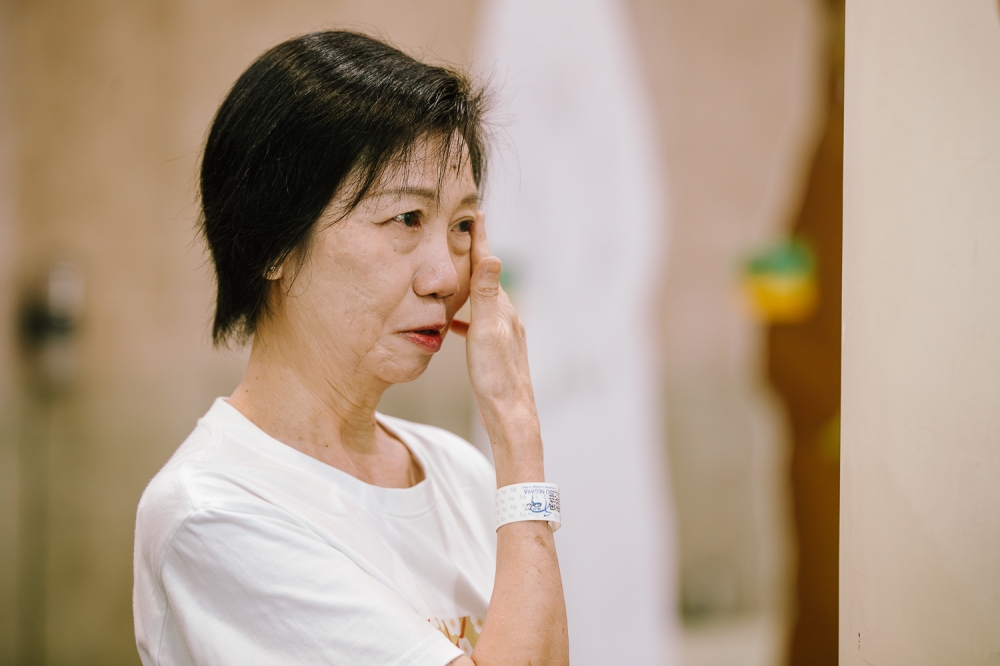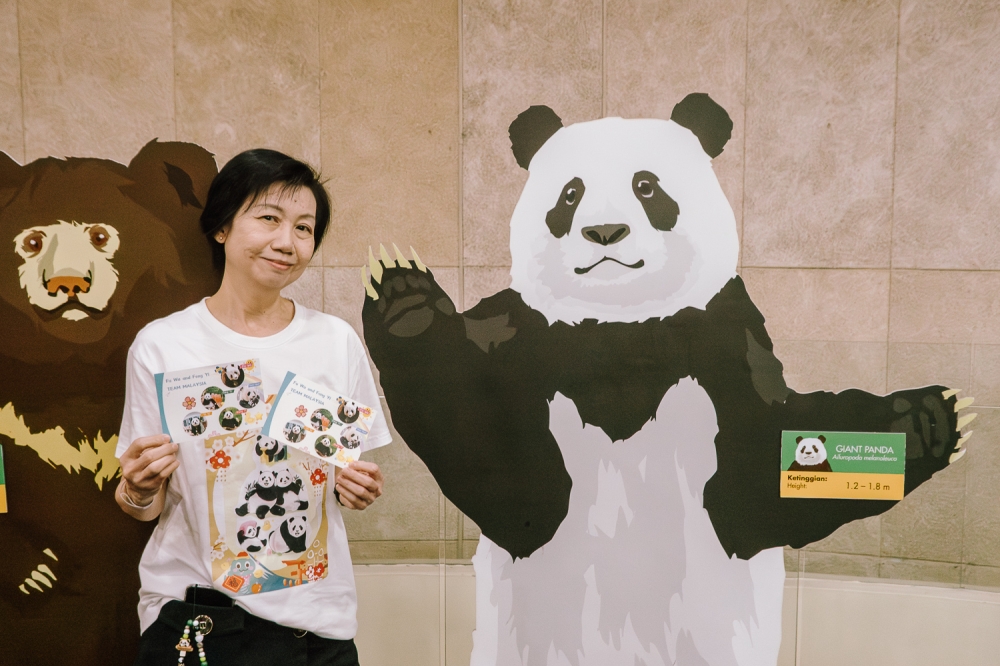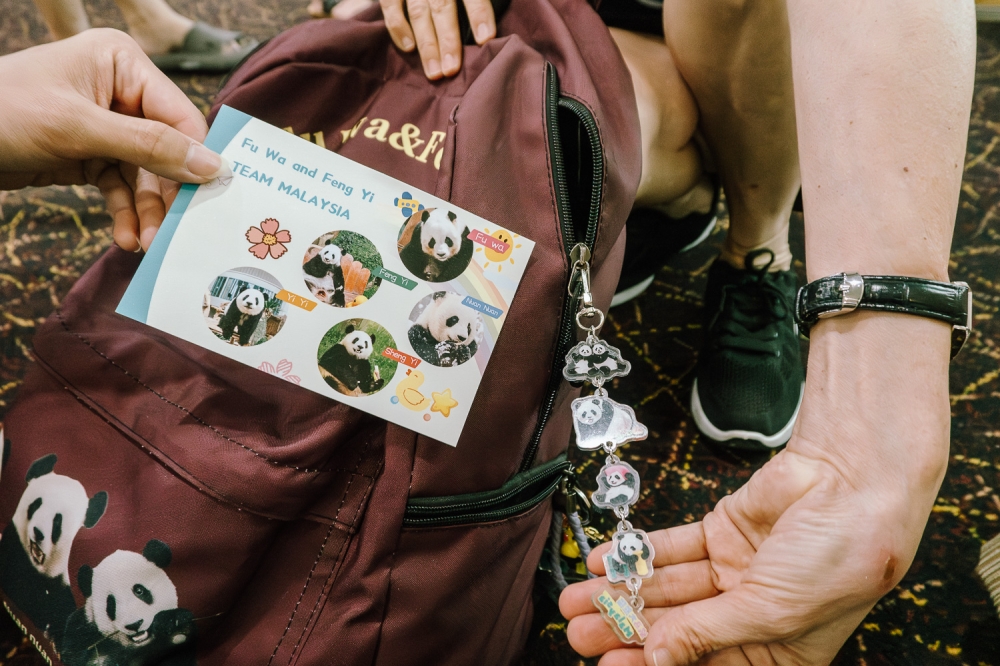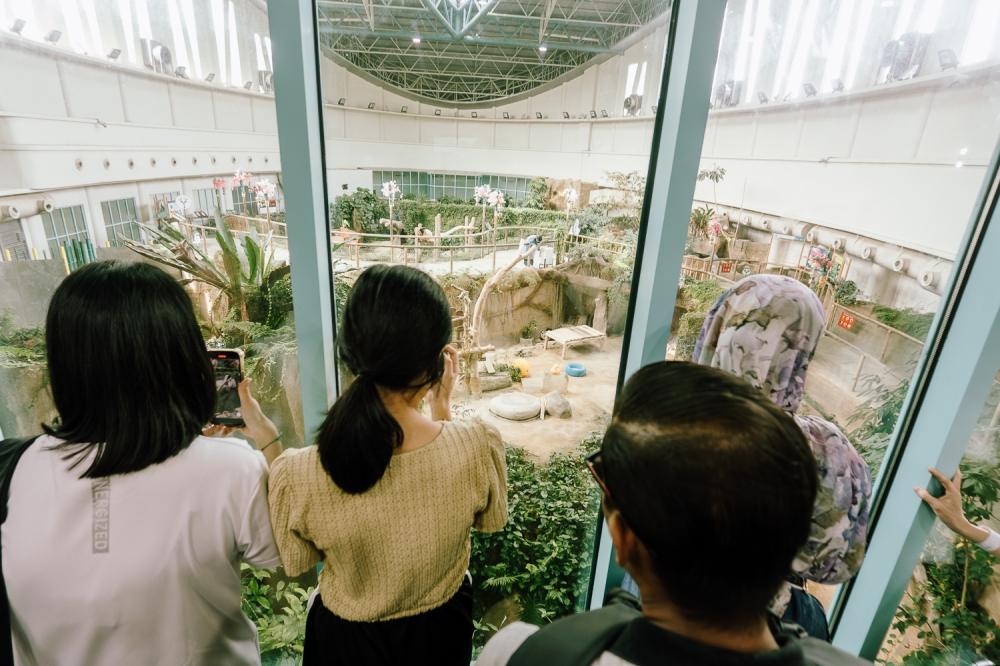KUALA LUMPUR, May 14 — Every Saturday, Sunday and public holiday, Chin Lee Peng travels from her home in Puchong, Selangor to Zoo Negara’s Giant Panda Conservation Centre (GPCC) in Ulu Kelang – a journey of some 30km – just to see Fu Wa and Feng Yi before they return to China later this month.
The retiree arrives before the zoo opens and stays until it closes at 5pm, and has become a familiar face to the zoo staff.
“It all started by chance, I guess,” she told Malay Mail when met at the enclosure recently.
“I’ve been coming for about two or three years since I first visited after the birth of the second panda cub, Yi Yi.”

Chin Lee Peng reacts emotionally while sharing the memories with Fu Wa and Feng Yi that she made over the years as a panda fan. — Picture by Raymond Manuel
After observing the cubs and their parents, Chin said she felt a deep, almost magical connection that has kept her coming back ever since.
To her, Fu Wa and Feng Yi are more than just animals – they are like her children.
“It’s like talking to people,” she said.
“The more you understand them, the more you realise what makes them special.”
She often arrives early to speak to them while they eat, saying they respond to her voice because of their sharp hearing.
Chin fondly recalled the days when fans could get closer to the pandas before their recent quarantine.
That access ended on April 18, when the Natural Resources and Environmental Sustainability Ministry placed the pandas in quarantine ahead of their return to China.
This is to ensure their health, fulfil international permit requirements, and allow them to adapt to their upcoming flight.
Fu Wa and Feng Yi have spent more than a decade in Malaysia under the International Cooperation Project on Giant Panda Conservation.
They are scheduled to return to China this month, with a new panda pair expected to arrive in August.

Some of the fan-made, panda-themed merchandise given out for free to visitors. — Picture by Raymond Manuel
“Most fans didn’t get to say goodbye properly,” Chin said.
“Especially those who regularly talk to them. Some don’t even know they’ve gone into quarantine.”
She said she is excited for the new pandas, but they can never replace Fu Wa and Feng Yi.
“The memories they’ve given me are irreplaceable. My friends and family know how much I love them.”
Nearby, another fan who only wanted to be known as Nisa shared how her love for pandas began in 2014, when the pair first arrived.
She described watching them as therapeutic – a feeling she likened to bliss.
“I was very excited seeing pandas for the first time,” she said.
“After the pandemic, I started watching panda videos on social media, even downloading Douyin just to follow panda content from China.”
“They’re so mischievous – it’s emotionally stirring,” she added.
Both Chin and Nisa have become well-versed in the pandas’ routines – from feeding times to their favourite bamboo types and behaviours.
Their passion has made them valuable to new visitors, who often rely on them for information.
Chin described Feng Yi as graceful and noble, while Fu Wa comes across as powerful and commanding.
“They can’t speak, so we fans must be their voice,” she said.
“The staff know me because I’ve been coming so often, and they appreciate that I help explain things to visitors.”
She said it comes naturally and brings her joy to contribute.

Chin Lee Peng poses with some of the fan-made, panda-themed merchandise given out for free to visitors. — Picture by Raymond Manuel
Bittersweet farewell
Both Chin and Nisa said they have accepted the pandas’ departure, even if it still hurts.
“When I found out about the quarantine, I was very sad,” said Nisa.
“I didn’t have time to visit. It’s bittersweet – they are the first pandas in our hearts, but we must let them go so they can retire.”
Now aged 19 – the equivalent of 57 in human years – Fu Wa and Feng Yi are entering their later adult years and will return to a more natural habitat suited for their retirement.
In the wild, pandas typically live 14 to 20 years, though they can reach up to 30 years in captivity.
For Chin, the cost of her weekly visits is worth every sen.
“When you love something, you don’t mind spending on it,” she said.
“For me, it’s not a waste.
“As long as I can still walk, I’ll keep coming here. And I want to help others learn about them.”







